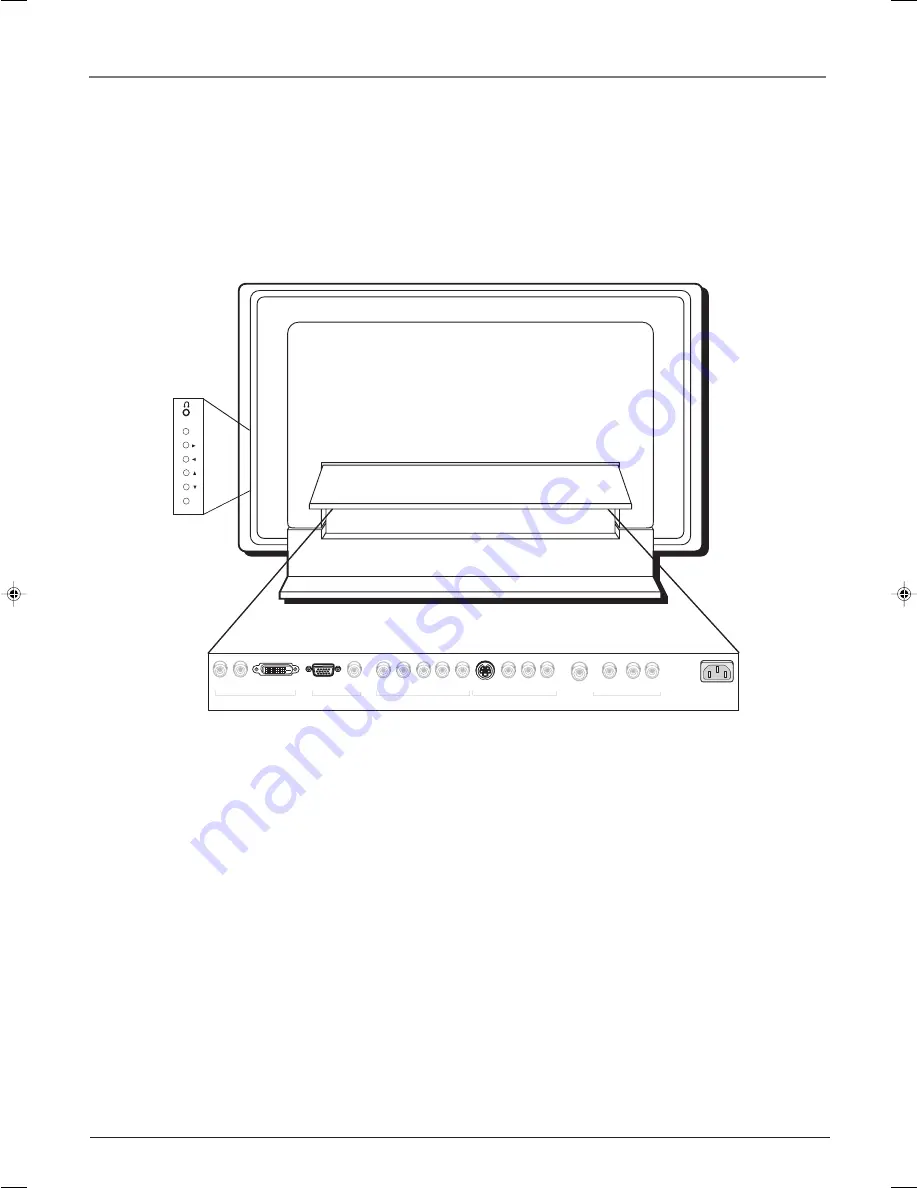
Connections & Setup
4
Chapter 1
Graphics contained within this publication are for representation only.
Explanation of Jacks
This section describes the jacks and cables you might use to make connections. There are
several ways to connect components to your TV.
Different jacks and cables provide a different level of performance. It’s important to remember
the different degrees of picture improvement for comparison. The YPbPr (component) jack is
considered an excellent improvement; S-Video and Video (composite) jacks are considered
very good; while the Antenna/Cable connection is good.
Bottom Panel (lift the panel as shown above to view the jacks)
Side Panel
Bottom Panel
DVI Input
Lets you connect an HD receiver, HD cable box, or a computer with a DVI output.
•
R AUDIO IN
Provides right audio connection when using the DVI jack. The right audio
connector is usually red.
•
L AUDIO IN
Provides left audio connection when using the DVI jack. The left audio
connector is usually white.
•
DVI (Digital Visual Interface)
For connection of components that have a DVI jack, such
as an HD receiver. The DVI jack provides an uncompressed, digital video interface
developed for high-bandwidth digital connection. It supports the overlay of high-resolution
graphics used by some program guides and interactive components.
RGB Input
•
RGB
For connection of components that have an RGB output jack, such as a personal
computer, HD receiver, or DVD player.
•
AUDIO IN (Stereo mini jack)
Use to obtain sound when a component is connected to
the RGB jack. Use the supplied 3.5mm mini phone to audio cable adapter. Connect audio
cables to the end of the adapter.
CH
VOL
MENU
POWER
VID1
S-VIDEO
IN
ANTENNA/
CABLE
RGB
DVI
AUDIO
IN
Pr
Pb
Y
R
L/
Mono
AUDIO
IN
AUDIO
IN
R
L
VIDEO IN
R
L/
Mono
AUDIO
IN
VIDEO
IN
CMPT
SUBWOOFER
OUT
R
L
AUDIO
OUT
AUDIO OUTPUT
16278190.01 Connections
4/13/04, 4:32 PM
4









































